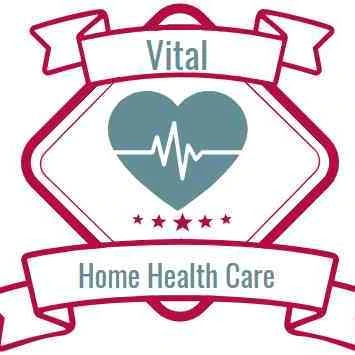Understanding Elderly Care Service

Understanding Elderly Care Service: A Closer Look at Vital Home Health Care
As the demographic landscape shifts towards an aging population, the need for robust elderly care services has never been more pressing. Vital Home Health Care stands at the forefront of this crucial sector, providing comprehensive and compassionate support to seniors and their families. In this article, we will explore the significance of elderly care services, examine the offerings of Vital Home Health Care, delve into relevant statistics, and consider diverse perspectives surrounding elderly care.
The Growing Need for Elderly Care Services
According to the World Health Organization (WHO), the global population aged 60 years and older is expected to reach 2 billion by 2050, up from 1 billion in 2020. This demographic shift underscores the urgency for tailored elderly care services that address the unique needs of this population. In the U.S. alone, the older adult population is projected to become more than 20% of the total population by 2030, a statistic that emphasizes the necessity for innovative and comprehensive care solutions (Source: U.S. Census Bureau).
With advancing age frequently comes a variety of health issues, including chronic conditions, mobility challenges, and cognitive impairments. These factors contribute not only to increased health care demands but also to the emotional and psychological needs of seniors. The challenge lies in providing elderly care services that balance medical, emotional, and social aspects of well-being.

Vital Home Health Care: A Comprehensive Approach to Elderly Care Services
Vital Home Health Care has emerged as a leading provider of elderly care services, offering tailored solutions that address a broad spectrum of needs. Their mission revolves around enhancing the quality of life of seniors through compassionate and professional care. Their services encompass a variety of offerings:
1. Personal Care Assistance
One of the foundational services provided by Vital Home Health Care is personal care assistance. This includes activities of daily living (ADLs) such as bathing, dressing, grooming, and meal preparation. The caregivers undergo rigorous training to ensure they deliver personalized support, maintaining the dignity and independence of each senior.
2. Skilled Nursing Care
For seniors with complex medical needs, Vital Home Health Care offers skilled nursing services. Registered nurses (RNs) and licensed practical nurses (LPNs) provide essential medical care, including medication management, wound care, and chronic disease monitoring. This aspect of elderly care services is crucial for later-stage seniors who require sophisticated health management.
3. Companion Care
Social isolation is a significant issue among seniors, leading to various mental health challenges. Vital Home Health Care addresses this concern through companion care. Caregivers provide emotional support, engage in meaningful conversations, and accompany seniors on outings, enhancing their social interactions and overall well-being.
4. Respite Care
Vital Home Health Care recognizes the importance of supporting family caregivers. Their respite care services allow family members to take a break, knowing their loved ones are in capable hands. This provides caregivers with the necessary time to recharge, reducing the risk of burnout and ensuring sustained high-quality care for seniors.
5. Specialized Care Programs
Tailored plans are crucial in elderly care services. Vital Home Health Care offers specialized programs for conditions such as Alzheimer’s disease, Parkinson’s disease, and post-surgical recovery. By ensuring that caregivers have specific training for various health conditions, the agency maximizes the quality of care for seniors with unique requirements.
Statistical Insights into Elderly Care
The context surrounding elderly care services is further illustrated by the following statistics:
- According to a 2021 report by the AARP, 87% of seniors wish to age in place, underscoring the demand for in-home care services like those provided by Vital Home Health Care (Source: AARP).
- The cost of home health care averages approximately $24 per hour in the U.S., according to Genworth Financial’s 2021 Cost of Care Survey, making it an accessible option compared to other forms of long-term care (Source: Genworth Financial).
- A study by the National Institute on Aging found that seniors receiving in-home care report higher satisfaction with their quality of life and experience less emotional distress (Source: National Institute on Aging).
These statistics highlight not only the rising demand for elderly care services but also the real benefits associated with home health care.
Diverse Perspectives on Elderly Care Services
While elderly care services provide numerous benefits, they also invite diverse perspectives. Some argue that home-based care is preferable, emphasizing the comfort and familiarity it offers. In contrast, others note that skilled nursing facilities or assisted living arrangements may be necessary for seniors with significant medical needs or those requiring more structured environments.
It is crucial to recognize that the best care solution often depends on individual circumstances, health status, and personal preferences. Vital Home Health Care aims to bridge the gap by offering personalized care plans that cater to the unique needs of each senior while supporting their families’ concerns.
Conclusion
In a world where the elderly population is expanding at an unprecedented rate, businesses like Vital Home Health Care play a vital role in shaping the future of elderly care services. By offering a diverse array of services tailored to meet the physical, emotional, and social needs of seniors, they help foster an environment that promotes dignity, independence, and quality of life.
As families consider options for their loved ones, understanding the comprehensive range of services available through agencies like Vital Home Health Care empowers them to make informed decisions. As the dialogue surrounding elderly care evolves, increased awareness and accessibility to these services will become paramount in ensuring that our aging population receives the care they deserve.
Sources:
- U.S. Census Bureau, “Older Americans Month 2023.”
- World Health Organization, “Ageing and Health.”
- AARP, “The Future of Aging: How Many Older Adults Will Need Care in 2030?”
- Genworth Financial, “2021 Cost of Care Survey.”
- National Institute on Aging, “Caregiving in the U.S.”
By engaging with the subject of elderly care services with depth and insight, we honor the elderly and the complexities of providing them with the supportive care they require.
